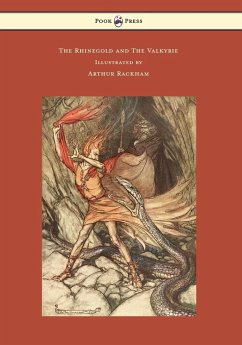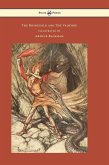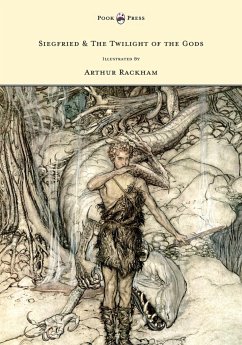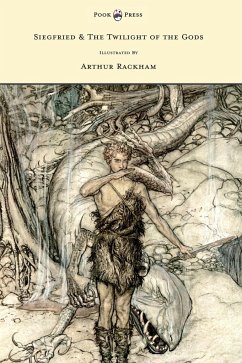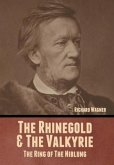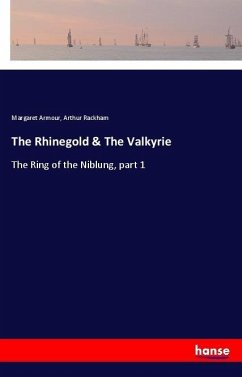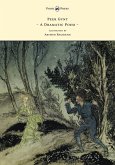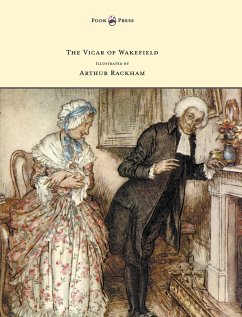This book forms part of our 'Pook Press' imprint, celebrating the golden age of illustration in classic literary works. The Rhinegold and the Valkyrie' was written by the German composer Richard Wagner (1813-1883). The works are based loosely on characters from the Norse sagas, and are here translated into English by Margaret Armour. The chief components include 'The Rhinegold' - the prelude, 'The Valkyrie' - the first day of the trilogy, 'Siegfried' - the second day of the trilogy, and 'The Twilight of the Gods' - the third day of the trilogy. The text is accompanied by a series of dazzling colour illustrations by Arthur Rackham (1867-1939). One of the most celebrated painters of the British Golden Age of Illustration, his artistry still delights both young and old over a century later. The text is presented in its original translation, alongside Rackham's beautiful images which only serve to refine Wagner's masterful story-telling.
Bitte wählen Sie Ihr Anliegen aus.
Rechnungen
Retourenschein anfordern
Bestellstatus
Storno

